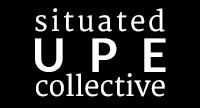Modern flood infrastructure has failed in its promises. Is it time for a modest approach? Authors Sumit Vij, Wageningen University & Research, the Netherlands Timos Karpouzoglou, Royal Institute of Technology KTH, Sweden Mary Lawhon, University of Edinburgh, the UK This commentary works through how urban flood infrastructure operates and evolves in Guwahati, India. The piece […]
Since the late 2000s, the city of Nairobi has become a focal point of large-scale and ambitious transport projects set to resolve the mess that is road traffic in the city. Such projects include the construction of the Thika superhighway, several by-passes and the controversial expressway, an elevated toll road connecting the affluent sides of […]
From the Mathare Social Justice Centre in Nairobi: Where is the water for our people? And what challenges do they face trying to make sure they can get enough for their families everyday? Our Art for Social Change campaign made a song about water struggles, and it features powerful commentary and activists from across Nairobi. […]
Reflection on Uta-Do African Cities Workshop Medhanit Ayele Whatchu gonna do? Vs. What are you going to do about it? Or the Swahili version of dear Kenyans ‘UTA-D0?’ Or አዪ..ታዲያ ምን ታረገዋለህ? …. ወይስ …. ምን ልታደርግ ነው? በሚሉት ጥያቄዎች መሀል ያለው ልዩነት Of the Ethiopians. All refer to the power tension defining one’s response […]
Uta-Do | 2022 | Nairobi Gloria Nsangi Nakyagaba (University of Oklahoma) Mary Lawhon (University of Edinburgh) In May of 2022, thirty or so scholars, artists and activists (and many self-identifying as a combination of these) joined together for a week of discussion and reflection in Nairobi at UTA-Do: African Cities Workshop. Our week began with […]
Arianna Tozzi, Irene Leonardelli, Enid Still, and Sneha Malani describe their work with counter-mapping. Using rivers and the flows of water and pollution as entry points, they capture urban-rural interdependencies in their rich and multi-faceted website Troubling Waterscapes. Here they provide a background to their counter-mapping project. This project began with a friendship between three […]
Emmanuel Awohouedji, a Benin environmentalist and educator, shares his experience of building and teaching a curriculum focusing on environmental problems and issues for middle and high schools in the Republic of Benin. This type of teaching is missing in Benin and requires overcoming administrative, structural and material hurdles—but also provides rich experiences for others to […]
How do we face the challenge of existing, obdurate built environments and infrastructures (and imaginaries and imperatives built upon and around them) in responding to the threat/s of climate change? Are such materialities as obdurate as is often imagined, and if so, to what degree? With what stakes, and with and for whom, do we engage this obduracy?
A recent Tweet [1] about the injustice of the rental housing stock in Khayelitsha, Cape Town, had me revisit my understanding of South Africa’s housing conundrum. My early career passion on urban slums and city spatial planning threw me into the abyss of just how difficult it is to provide dignified housing for all. Without […]
Accra is a city of storage. While walking across its busy roads, one can spot a myriad of objects used to transport, store and sell water: Water is sold at the traffic light in tiny plastic ‘sachet’ bags, plastic or metal containers mounted on trucks are used to transport and sell bulk water, and residents […]











